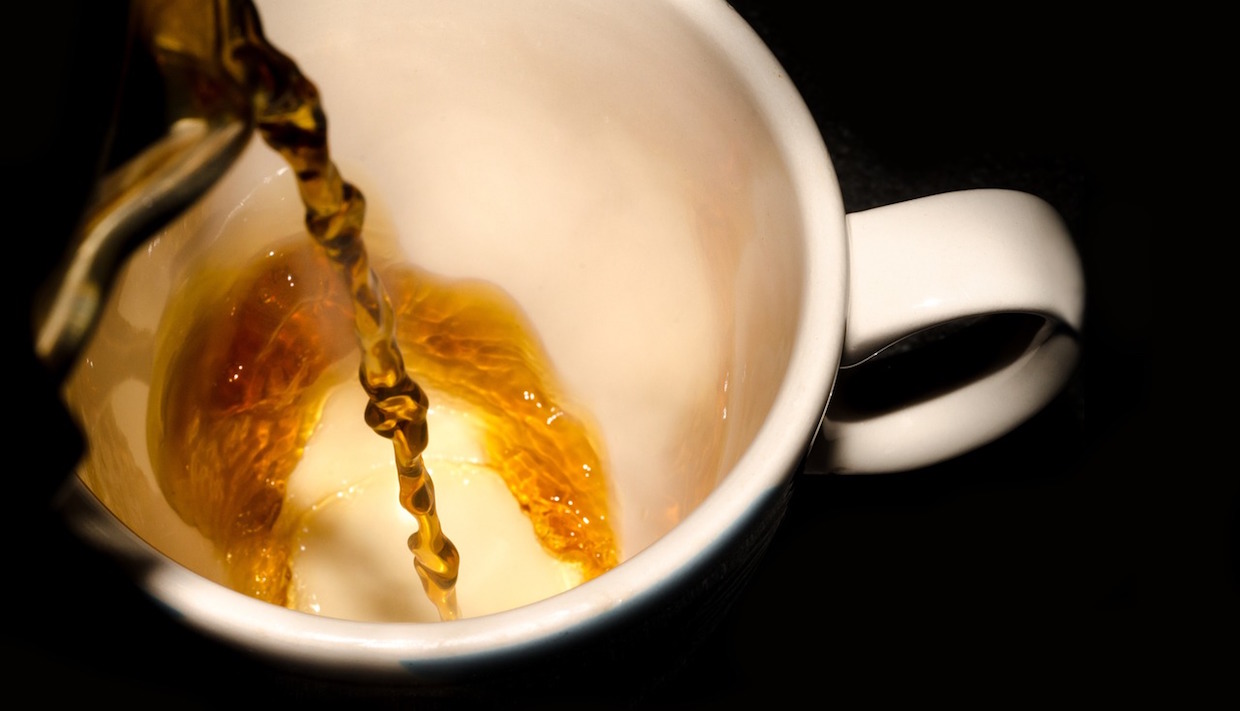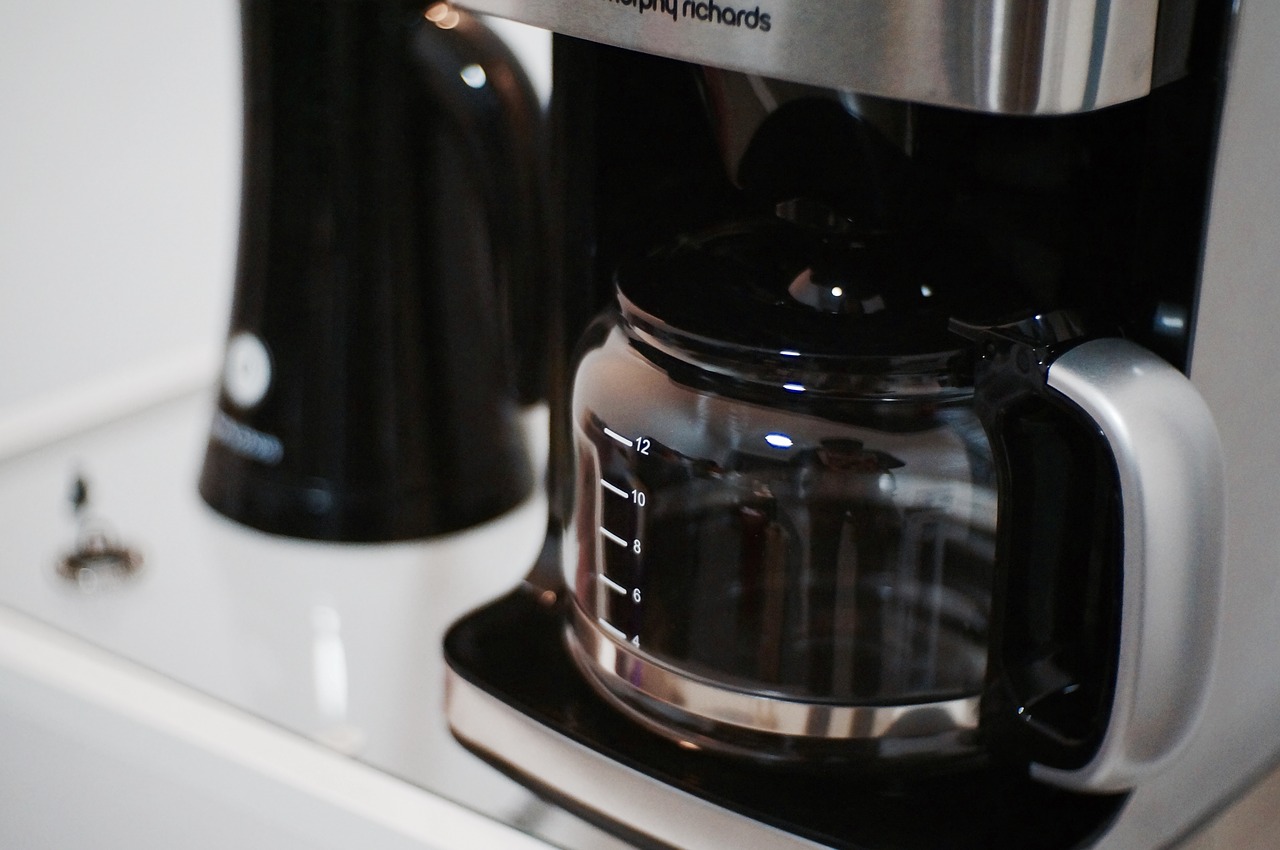While cold brew continues to be the coffee industry’s hottest growth category, new research debunks some of its foundational marketing claims as a lower-acid, healthier alternative to hot coffee.
Using light-roasted coffees from Brazil, two regions of Ethiopia, Colombia, Myanmar and Mexico, with recipes designed to replicate a typical home consumption environment, researchers from Thomas Jefferson University found that the pH levels of both hot and cold coffee were similar, ranging from 4.85 to 5.13. Additionally, hot samples contained higher levels of antioxidants, which are believed to be responsible for many of coffee’s health benefits.
“Coffee has a lot of antioxidants, and if you drink it in moderation, research shows it can be pretty good for you,” Jefferson chemist and study co-author Megan Fuller said in a university announcement. “We found the hot brew has more antioxidant capacity.”
In other words, all the healthy lifestyle bloggers, beverage trend-seekers and coffee companies themselves saying that cold-brewed coffee is healthier than hot-brewed coffee have been, at best, making purely speculative claims. This perhaps relates to the findings that hot-brewed coffee has more titratable acids — which relate more to flavor than to pH — than cold brew, creating the perception of lower acidity.
Importantly, the authors noted an existing new wave of meta-analyses that have shown the potential health benefits of coffee, including improved cardiovascular health, and decreased risks of liver, metabolic and neurological diseases. Research on coffee consumption and health rarely ever factors in brewing method, and most studies assume hot as the standard brewing method.
The Jefferson researchers noted the rapid surge in cold brew’s popularity among U.S. consumers in recent years, including reports that the domestic cold brew coffee market grew 580 percent from 2011 to 2016, and a 460 percent increase in retail sales of refrigerated cold brew coffee in the United States from 2015 to 2017, generating $38 million in 2017 alone.
With this surge have come marketing claims of all kinds. Often repeated among cold brew sellers is the claim that cold-brewed coffee is a lower-acid alternative to hot brew that is less likely to cause heartburn or gastrointestinal problems.
According to the Jefferson research — which explored basic acidity (pH), and a range of other chemical differences related to acidity — these claims are essentially bogus, in no small part because the correlation between gastrointestinal issues and/or heartburn and hot coffee is to this point still unclear. To put it another way, if hot coffee does not cause gastrointestinal issues, then how can cold brew be better at not causing gastrointestinal issues?
“Despite the growing popularity of cold brew coffee, very little research has been published on its chemical attributes, including pH and total antioxidant activity, and associated health effects,” the authors wrote in the study, published in Scientific Reports. “An exhaustive literature search returned only four peer-reviewed studies related to cold brew coffee. None of these studies provided enough information to either support or refute the health claims about cold brew coffee made by commercial coffee vendors and cold brew enthusiasts.”
The study also suggests cold brew may not carry with it many of the health benefits associated with hot-brewed coffee.
“This study suggests that the hot brew method tends to extract additional non-deprotonated acids in comparison to the cold brew method. These acids may be responsible for the higher antioxidant activities observed in hot brew coffee samples,” the authors wrote. “Additionally, the chemical composition of hot brew coffee may be more diverse and complex than that of cold brew coffee. Additional research is needed to fully understand any possible differences in the health effects of coffee as a function of brewing temperature and time. The lower antioxidant capacity in cold brew coffees may decrease the chemoprotective benefits known to be associated with hot brew coffees.”
Nick Brown
Nick Brown is the editor of Daily Coffee News by Roast Magazine.
Comment
2 Comments
Comments are closed.








As to the issue of gastrointestinal problems resulting from drinking coffee, I’ve some first and second hand observations on the matter.
My conclusion is that such issues do not arise from quality “specialty” grade coffees which have been properly handled, roasted, stored, brewed. One case stands out:
visiting an old friend I’d not seen in years, I had brought some freshly and well roasted whole bean, which I brewed in frenchpress. I knew my friend would want some, so brought the press downstairs where he and two hired men were working on a remodel of their basement. Jeff eagerly took a cup, Bob declined, aadmitting he really wanted to but his doc had him off coffee because of tummy troubles. I asked for specifics. Gastric reflux was very heavy, and doc had him quit coffee to see if that was a cause. His issued went away. Smelling the root of the problem I asked him “wha KIND of coffee had you been drinking”. Oh the bulk stuff from the grocery store, you know, those bins where you put it into their bag….. As I had suspected. Having experienced that stuff myself for a time, I told him the issue was not “COFFEE” but what KIND of coffee. Hunh?? Yes.. THAT coffee is typically three to six months old in those bins, and is badly oxidised.. rancid is another word. Further almost all is badly overroasted, resulting in long chain organic acids that are very harsh and unkind to tummies AND taste buds. Further, I bet his brew method was a typical Mr Coffee/deWalt type countertop brewer. Again, I hit it square on the head. By then the smell of my brew was tormenting him, so he asked me to pour a half cup, and if it made his tummy rebel, he’d accept the consequences of his folly. That was about 10:00 AM. As he took his first sip he marvelled at how GOOD it tasted.. not harsh or bitter at all. I returned at lunchtime with a new pot, and asked him how the halfcup went down. He said “I had no problem at all, it was wonderful”. I then asked whether the same halfcup of what he used to drink would have caused problems. He said no question, yes, He begged me for a full cup then. Late afternoon, he dedided to pass, choosing to see how he fared through the night. Next morning he held out a BIG cup eagerly… persued by four more throughout the day. Following day, same.. by Friday he was drinking five big cups per day and no problems.
Light to mediumdark roasts, brewed well, with the coffee less than a week off roast, simply does not contain all the harsh long chain organic acids, tars, and other nasties that typical coffee does….. and it is those precise compounds I am convinced by the above and similar incidents that stimulate digestive system issues with coffee.
Most cold brewed coffee begins with decent beans, and they are tycially ot burned to death, and are certainly brewed well within the “freshness window” to prevent extreme staling so common in commodity grade (and worse) coffee. Thus cold brew, as a “class” of coffee, will be very different than the garden variety garbage that is near ubiquitous. But the same can be said of typical specialty grade coffee, which is of quality to begin with but is generally (though not always) handled to standards and thus distinct from commodity grade stuff.
Those marketing cold brew apparently tend to compare their product with all other coffee as a whole class, and their distinctives do carry in that comparison. However, this study appears to have been done using specialty grade coffee handled to standard protocols, and this ALSO distinct from commodity grade stuff.
Personally I have yet to ever have any true cold brewed coffee product that I really LIKED and would seek out. Give me a well done pourover, french press, espresso based crink, made from quality beans well roasted and fresh, and I’ll gladly cede all the cold brew I’ve ever had to you. I do still continue to explore the process, fearing my hope for an excellent cold brew is a false one. i have on occasion, when sorely pressed to produce an iced coffee, brewed hot in the frenchpress then poured over ice to chill….. and gotten rave reviews from those who are strong patrons of cold brew. I didn’t bother explaining WHY it was so good…. they enjoyed it immensely. And that was sufficient.
…say what? LOL!